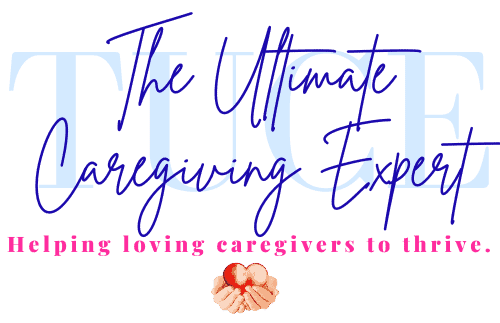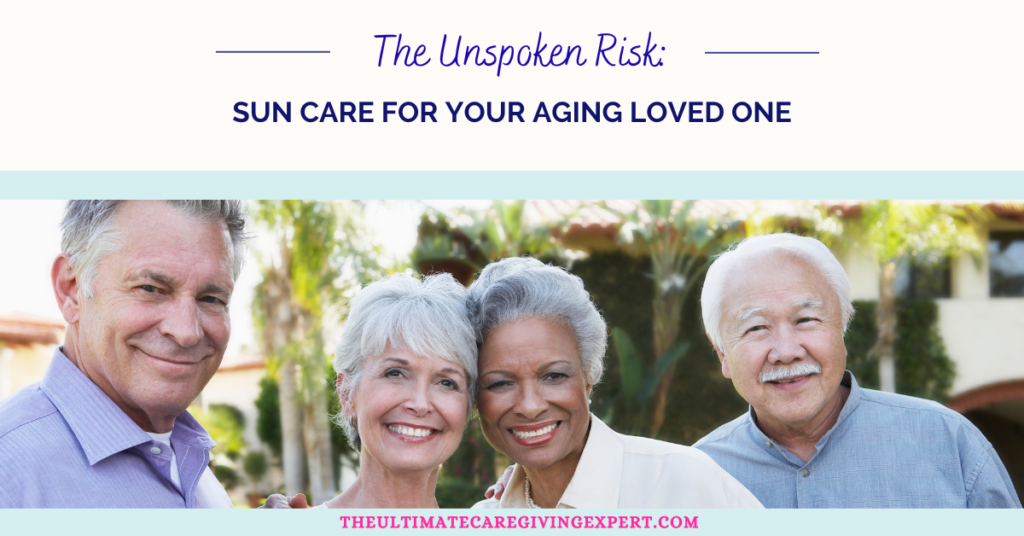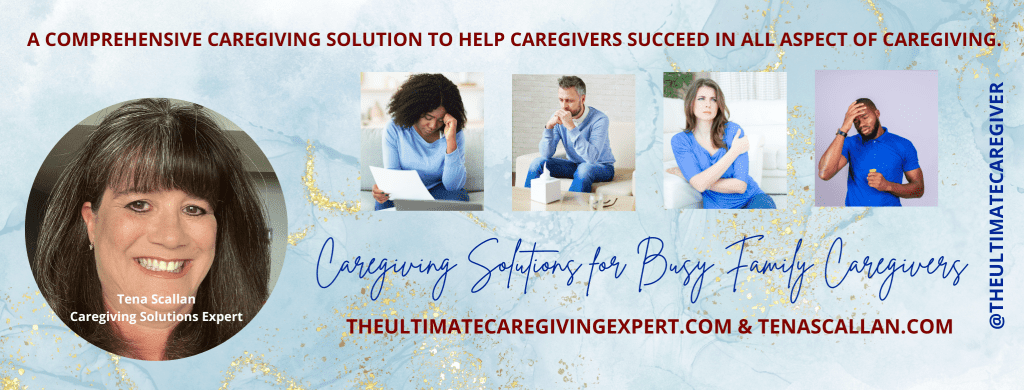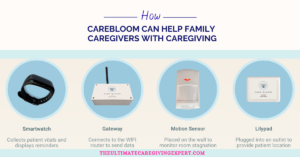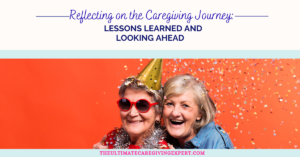Sun Care for Your Aging Loved One
As the golden warmth of the sun invites us outdoors, it’s essential to recognize that while sunlight provides crucial Vitamin D, it also poses significant risks, particularly for the elderly. As we age, our skin becomes thinner and more delicate, making it more susceptible to sunburn, skin damage, and even skin cancer. Additionally, many medications commonly prescribed to seniors can increase their sensitivity to the sun, further exacerbating these risks. For family caregivers, ensuring proper sun care for their aging loved ones isn’t just a choice; it’s an imperative safeguard for their health and well-being. In this guide, we’ll explore the dangers of sun exposure for the elderly and provide essential tips for protecting your loved one’s skin from harmful UV rays.
The Silent Threat: Understanding the Dangers of Sun Exposure
A sunny day can brighten anyone’s mood, but for the elderly, prolonged exposure to the sun can be detrimental to their health. As we age, our skin undergoes significant changes, becoming thinner and more delicate. This natural aging process makes older adults more susceptible to sunburn, skin damage, and potentially, skin cancer. Furthermore, many medications commonly prescribed to seniors, such as certain antibiotics, diuretics, and blood pressure medications, can increase their skin’s sensitivity to the sun, further exacerbating the risks. Family caregivers must understand these dangers and take proactive steps to protect their aging loved ones from the harmful effects of sun exposure.
The Importance of Sun Protection
Sun protection isn’t just about applying sunscreen; it’s about understanding how to keep your aging loved one safe while still enjoying outdoor activities. In addition to sunscreen, hats, sunglasses, and protective clothing play crucial roles in shielding your loved one from harmful UV rays. Wide-brimmed hats provide shade for the face, neck, and ears, while sunglasses with UV protection help safeguard their eyes from sun damage. Opting for loose-fitting, lightweight clothing made from tightly woven fabrics can also provide an extra layer of protection against UV radiation. Moreover, scheduling outdoor activities during non-peak hours, typically before 10 am and after 4 pm, can significantly reduce your loved one’s sun exposure, as UV rays are less intense during these times. By implementing these simple yet effective sun protection measures, you can ensure that your aging loved one enjoys the outdoors safely and without the worry of sun-related health risks.
Choosing the Right Sunscreen
Not all sunscreens are created equal, especially when it comes to seniors. As their skin becomes more delicate with age, selecting the right sunscreen becomes increasingly important to ensure optimal protection.
When choosing a sunscreen for your aging loved one, consider the following:
-
Opt for Broad-Spectrum Sunscreens: Choose sunscreens that offer broad-spectrum protection, as they protect against both UVA and UVB rays. This helps safeguard your loved one from sunburn, skin damage, and the risk of skin cancer.
-
Choose SPF 30 or Higher: Select sunscreens with a Sun Protection Factor (SPF) of 30 or higher. This provides adequate protection against harmful UV rays, reducing the risk of sunburn and skin damage.
-
Look for Mineral-Based Sunscreens: For seniors with sensitive skin, mineral-based sunscreens containing ingredients like zinc oxide or titanium dioxide are often gentler and less likely to irritate. These physical blockers sit on the skin’s surface, reflecting and scattering UV rays away from the skin.
By choosing the right sunscreen, you can help protect your aging loved one’s skin from the harmful effects of sun exposure, ensuring they can enjoy outdoor activities safely and comfortably.
Hydration Is Key
Proper hydration is essential for everyone, but especially for seniors spending time outdoors. Sun exposure can increase the risk of dehydration, making it crucial to encourage your aging loved one to drink plenty of water. This is particularly important for seniors who may be taking diuretics or medications that increase the risk of dehydration. Ensuring they drink an adequate amount of water throughout the day can help prevent dehydration and maintain their overall health and well-being, even on the sunniest of days.
Proper hydration is essential for everyone, but especially for seniors spending time outdoors.
- Encourage your aging loved one to drink plenty of water throughout the day.
- Offer hydrating snacks such as fruits and vegetables with high water content like watermelon, cucumbers, and oranges.
- Avoid caffeinated and alcoholic beverages, as they can contribute to dehydration.
- Remind them to drink water before, during, and after outdoor activities to replenish lost fluids and prevent dehydration.
- Consider using a water bottle with measurement markers to track water intake and ensure they are staying adequately hydrated.
The Importance of Regular Skin Checks
Regular skin checks are crucial for the early detection of any changes that may indicate skin cancer. As your loved one ages, it becomes even more important to monitor their skin for any signs of concern. Encourage them to conduct regular self-examinations and assist them in the process if needed. Here’s what to look for during a skin check:
- New Moles: Check for any new moles that appear on their skin.
- Sores that Won’t Heal: Pay attention to any sores that do not heal within a reasonable amount of time.
- Changes in Existing Moles: Monitor existing moles for any changes in size, shape, or color.
Early detection is key to successful treatment, so it’s essential to be vigilant and seek medical attention promptly if you notice any worrisome changes. Regular skin checks, along with proper sun protection measures, can help your aging loved one maintain healthy skin and reduce their risk of skin cancer.
Conclusion
As a family caregiver, ensuring proper sun care for your aging loved one is a responsibility that shouldn’t be taken lightly. Understanding the dangers of sun exposure and taking appropriate precautions can help protect their skin from harmful UV rays and reduce the risk of skin cancer. By implementing simple yet effective sun protection measures such as applying broad-spectrum sunscreen, wearing protective clothing, staying hydrated, and conducting regular skin checks, you can help keep your loved one safe while still enjoying the great outdoors. Remember, prevention is always better than cure when it comes to sun care. So, as you plan your next outdoor adventure, don’t forget to pack sunscreen and protective gear. Your loved one’s skin will thank you for it.
